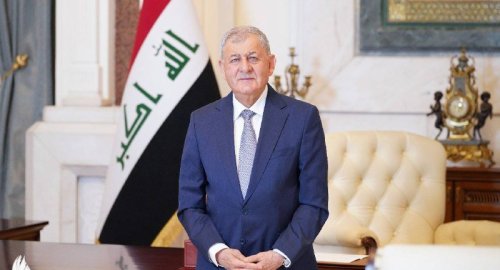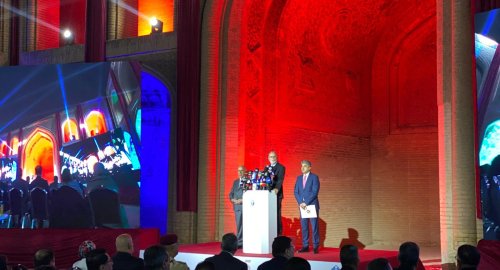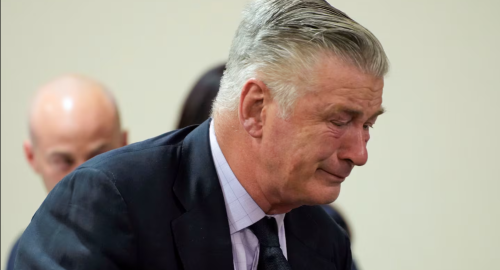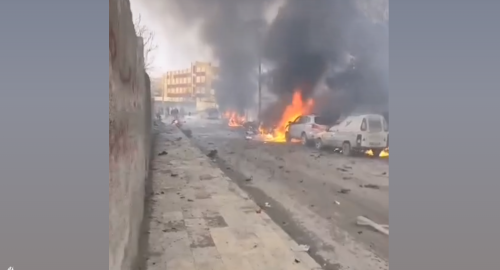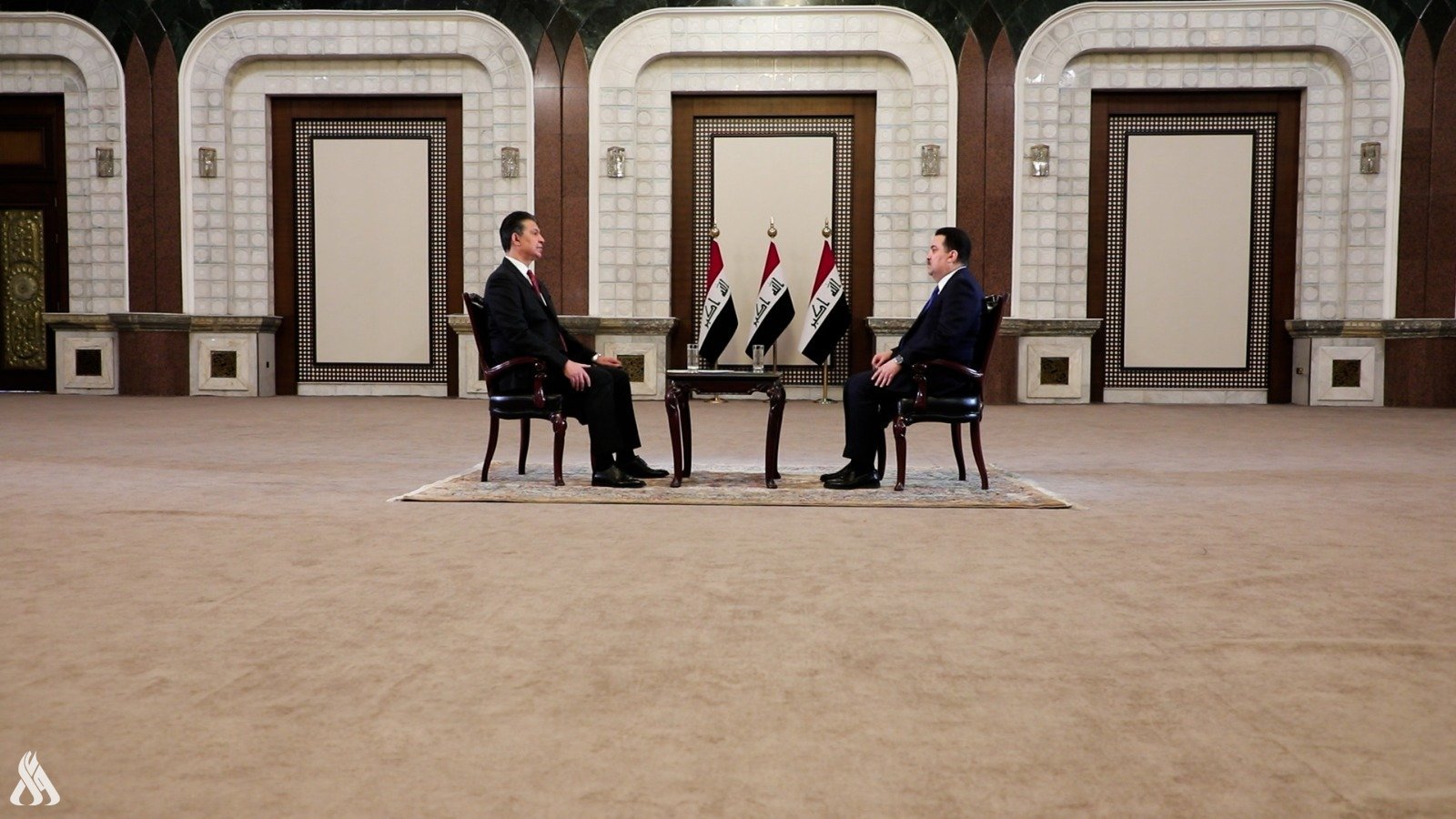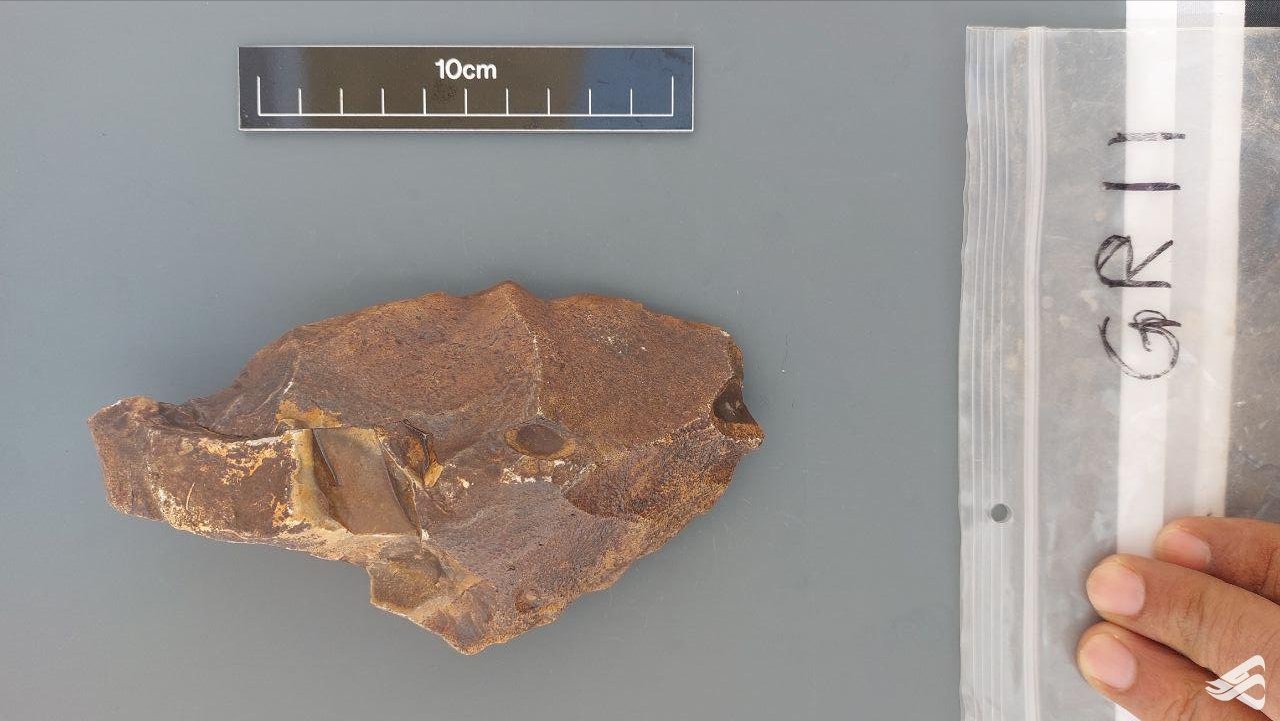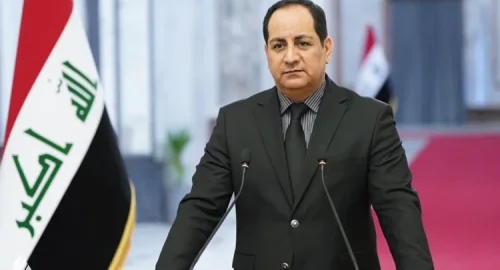
Al-Awadi: Iraq demands that the Palestinian issue be resolved without temporary fixes

- 14-11-2024, 13:44
INA- Baghdad
The official spokesman for the Iraqi government, Bassem Al-Awadi, confirmed today, Thursday, that October 7 is the result of accumulated injustice against the Palestinian people, and indicated that Iraq requested permanent solutions to the Palestinian issue and not band-aid ones.
Al-Awadi said in a statement to the Iraqi News Agency (INA): "The point of view of the Iraqi government and Iraqi society is that October 7 is the result of accumulated injustice against the Palestinian people, as an event of this magnitude and force cannot explode unless there are complete and large pressure elements that lead to that," noting that "there are those who try to bypass these elements and portray things as stable, and the events of October 7 came as a surprise as if they were not linked to the context of what preceded them."
He added that "the Iraqi conviction lies in the fact that everything that is happening is an accumulation of injustice, aggression, settlement, and injustice to the rights of the Palestinian people, and this continuous streak from 1948 to 2023 cannot be easily overlooked and focused on a passing moment on October 7," noting that "fairness, justice, human rights, respect for countries, peoples, societies, and sovereignty call on us to place this huge number of years as a result that leads to such a very large explosion."
Al-Awadi explained that "Iraq calls for solutions not to be band-aid or temporary solutions, and they must be decisive, effective and real in guaranteeing the rights of the Palestinians," noting that "the fair solution is decided by the Palestinians themselves, which is an Arab Palestinian state with al-Qudus as its capital, and this fact must be remembered if the entity tries to ignore these facts and go towards imposing the logic of force and unsustainable solution.
He continued: "The Iraqi assessment was clear. If we go back to the first Cairo conference held after the events of October, where the Prime Minister confirmed that the war will roll on and if this war continues for a long time, it will include everyone and turn into a comprehensive war, and this is what we do not want, as wars are destructive to economies, countries and societies and are against development, prosperity and stability," indicating that "we are still close to a comprehensive war, When the war expands, there is no talk of development, and the enemy's goal is to spend billions of money towards armament and wars against Arab and Islamic countries instead of going towards investment, prosperity, stability and services."
Al-Awadi continued that "the entire Arab and Islamic system should not go towards critical options, but towards calm and resolving matters with tools of pressure and understanding with the United Nations, the international community and major countries, as this war is not even in the interest of major countries," pointing out that "the Middle East is a large region and there is trade exchange with the West, relations, investments and oil, and that this region constitutes the heart of the world for energy and when war breaks out, it is not only the region that is affected, but the whole world." There will be an energy, export and migration crisis, and it will open the way for terrorist groups to reformulate their discourse and movement again."
He stressed that "Iraq played its political role effectively and accomplished the role of working on relief issues in a very large way and provided assistance to Gaza, the West Bank and UNRWA, and we tried as much as possible to coordinate with Jordan, Egypt and the Palestinian Authority in order to deliver relief materials and aid to the affected displaced and we provided support to UNRWA, which supervises the provision of aid, social care, medical and health care, care for the elderly, women and the elderly, where we provided very large assistance this year to reach the Palestinian people," pointing out that "we are now In front of a new scene, this scene is Gaza is destroyed and the entity continues to destroy southern Lebanon, and that the process of rebuilding Gaza and southern Lebanon needs the solidarity of more than one state."
He pointed out that "it is possible to choose a group of Arab countries or one of the Arab and Islamic banks or institutions in which funds can be placed and form a committee from a group of Arab and Islamic countries, a ministerial committee with the General Secretariat of the League of Arab States after the establishment of the fund and develop plans for how to rebuild," noting that "these plans are developed with the United Nations and UNRWA, in addition to the Palestinian Authority and the Lebanese government as the concerned, and the plan for the reconstruction of Gaza and southern Lebanon begins, through this fund, which was put forward by the Prime Minister."
Car bomb explosion in Manbij, Syria
- International
- 04:41
Technical glitch halts American Airlines flights on Christmas Eve
- International
- 04:38
US Central Command: We killed ISIS terrorist leader Abu Yusuf in Syria
- International
- 24/12/20
Liverpool compete with Real Madrid to sign Olympique Lyonnais star
- Security
- 24/12/19
Hackers exploiting Microsoft Teams to gain remote access to user’s system
- Multimedia
- 24/12/17
The discovery of Pre-Christian human settlement sites in Iraq
- Investigations and reports
- 24/12/18



